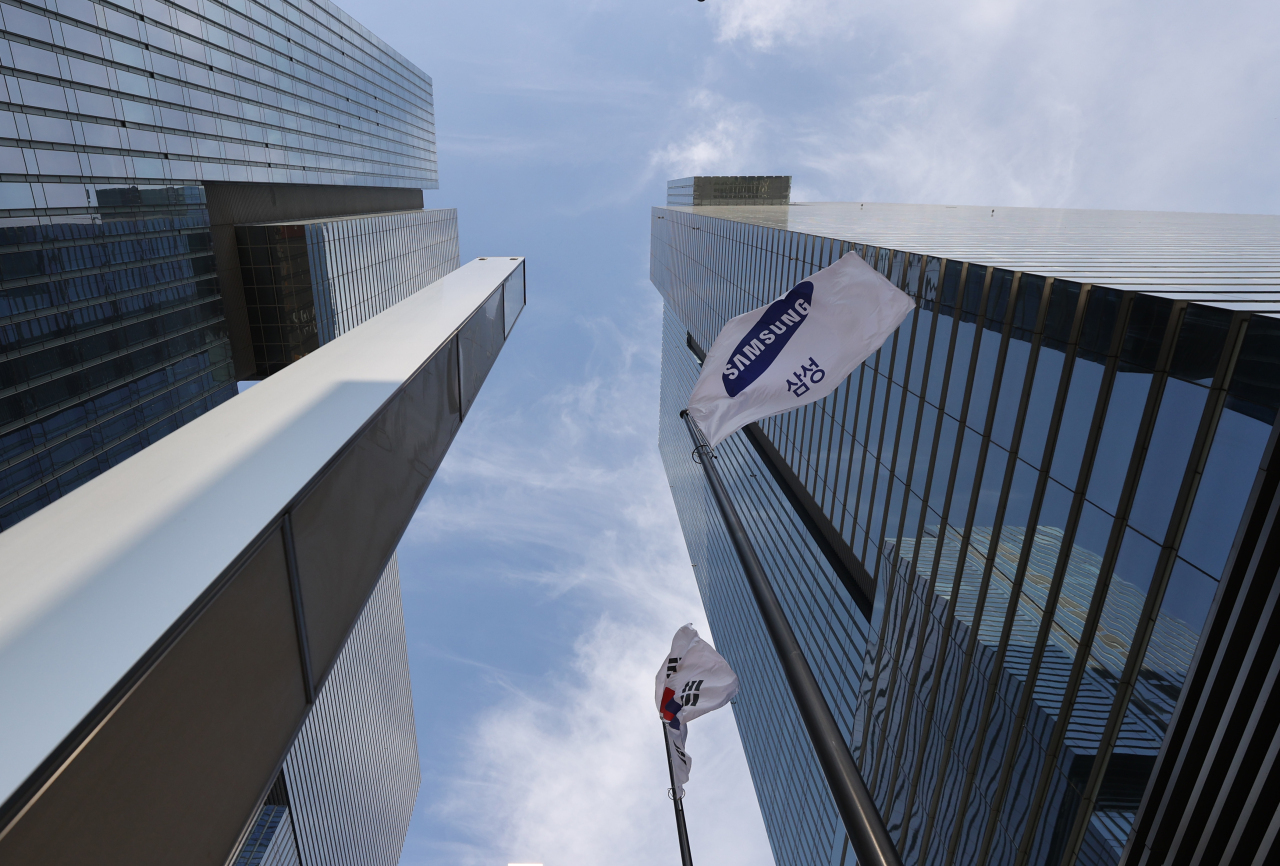 |
Samsung Electronics building in Seocho-gu, southern Seoul. (Yonhap) |
South Korean tech behemoth Samsung Electronics saw its presence on the main bourse drop to the lowest in 34 months in terms of market capitalization, data showed Thursday, with analysts pointing to volatilities caused by the global supply bottleneck and foreigners’ selling spree.
Samsung’s value stood at some 402.9 trillion won ($325.7 billion) as of April 14, accounting for 18.91 percent of the Kospi’s total market value of 2,131 trillion won, according to data provided by the sole bourse operator Korea Exchange. This marks the first time the firm’s weighting against the total market cap fell below 19 percent since June 18, 2019, when the figure came to 18.95. At the time, the market bellwether’s value stood at 264.8 trillion won and the Kospi’s total market value at 1,397 trillion won.
Samsung has been struggling to boost its share value this year, despite record quarterly sales posted in the first three months. Its share value fell 13.92 percent since the beginning of the year, while the Kospi dropped 8.7 percent in the same period.
The firm’s sales in the first quarter came to 77 trillion won, hitting a record high on a quarterly basis. Operating profit jumped 50.3 percent on-year in the cite period to 14.1 trillion won, the second-highest figure in history for a first-quarter performance.
LG Energy Solution, which attracted a record-setting 114.06 trillion won from investors for its initial public offering in January, contributed to the Kospi’s sharp expansion, which in turn led to a smaller pie for Samsung, analysts noted.
But the major catalysts behind Samsung’s lackluster share value is the foreigners’ selling spree coupled with external risks such as the global supply bottleneck and the Ukraine crisis, according to analysts.
Foreigners have already offloaded more than 2 trillion won of their shares in the first three weeks of this month.
“Since the beginning of the year, foreigners have offloaded some 9.3 trillion won worth of Korean stocks and half of them were dealt through program trading,” said Shinhan Investment analyst Choi Yoo-joon.
“This led to a drop in Samsung’s clout over Kospi and the existing macro uncertainties led to a drop in its share value despite the earnings surprise in the first quarter,” he added.
The Ukraine crisis, rising inflationary pressure and the intensifying lockdown in China due to the surge in the omicron variant has been causing waves of volatilities for Samsung and the risks are likely to stick for some time, said Lee Seung-woo, an analyst at Eugene Investment & Securities.
China accounts for 58 percent of global demand for semiconductors and the Ukraine crisis has been feeding anxieties over supplies. DRAM chip prices have been falling for the past seven weeks straight.
By Jung Min-kyung (
mkjung@heraldcorp.com)








